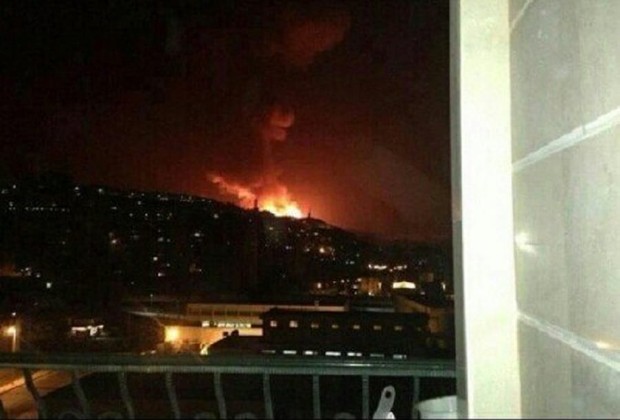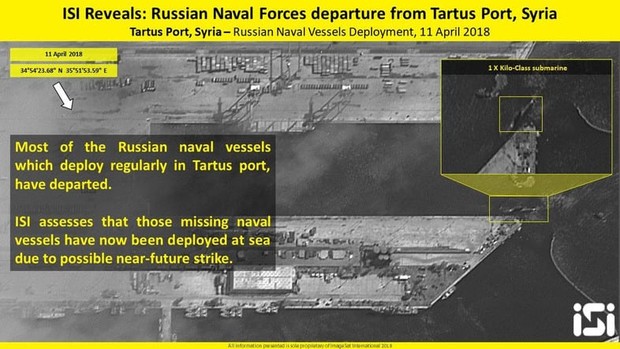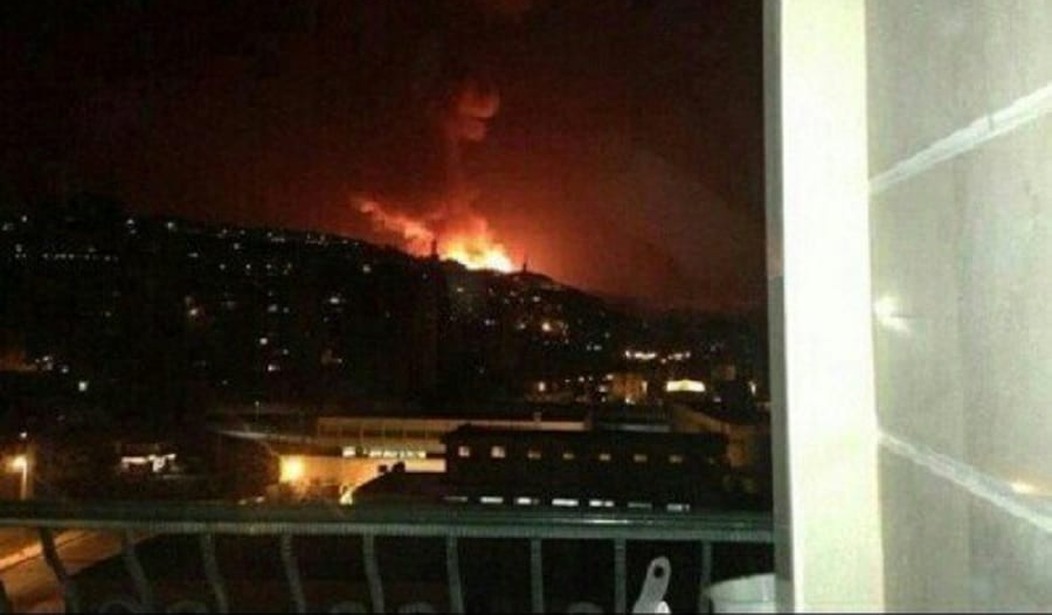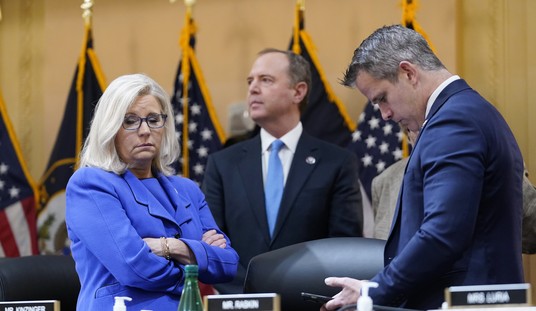
After taking a pounding last night that probably put it’s chemical weapons capability out of action for months (cholorine) and years (sarin), Syria was out bright and early today claiming it was no big deal because the Russians had warned them.
The Syrian government and its allies have absorbed a U.S.-led attack on Saturday and the targeted sites were evacuated days ago thanks to a warning from Russia, a senior official in a regional alliance that backs Damascus said.
“We have absorbed the strike”, the official told Reuters.
“We had an early warning of the strike from the Russians … and all military bases were evacuated a few days ago,” the official said. Around 30 missiles were fired in the attack, and a third of them were shot down, the official said.
The military terminology for this is “damned lie.”
Here are the key elements.
There are different types of surprise.
Generally speaking, military operations exist in three planes: strategic, operational, and tactical levels. It is possible to have different things going on in all three. For instance, you can be on the offensive at the strategic level (think the the allies in World War II in the winter of 1944-45), but being on the defensive and the operational level (Battle of the Bulge) and having tactical units involved in offensive and defensive operations (the 101st Airborne and Bastogne). Surprise, one of the Principles of War, can work in much the same way. There is no doubt that we forfeited operational surprise in this attack last night. Early in the week we telegraphed that we were no longer accepting chlorine strikes as an acceptable, if nasty, tactic. (This had been hinted at earlier but this week was the first time that it was made clear that chlorine was verboten.) And early on Wednesday morning, President Trump made it clear that a tentative decision had been reached in favor of a military strike.
Russia vows to shoot down any and all missiles fired at Syria. Get ready Russia, because they will be coming, nice and new and “smart!” You shouldn’t be partners with a Gas Killing Animal who kills his people and enjoys it!
— Donald J. Trump (@realDonaldTrump) April 11, 2018
There was UN action on Thursday, which revealed our inclination. More confusion was sown by Trump (though I think any serious person knew he could not walk back the previous day’s tweet and retain any credibility).
Never said when an attack on Syria would take place. Could be very soon or not so soon at all! In any event, the United States, under my Administration, has done a great job of ridding the region of ISIS. Where is our “Thank you America?”
— Donald J. Trump (@realDonaldTrump) April 12, 2018
And there was more UN action on Friday. Both of those meetings essentially increased the level of tension but also prevented a strike from taking place (give peace a chance and all that, doncha know?). And Theresa May had to get cabinet approval which was announced on Friday.
At the same time a Notice to Mariners and a Notice to Airmen was issued clearing the sea lanes and air corridors above and near Syria. US naval and air assets moved into the region. On Wednesday, the USS Harry S. Truman carrier strike group sortied from Norfolk, VA, to the Mediterranean. It would not arrive until late next week so there was a lot of speculation on whether we would hold off until we had a carrier on station.
So everyone knew an attack was coming, forfeiting operational surprise, but there was still no tipping of the hand on the tactical level, that is, the time-on-target of the first wave of strikes.
All of this had been closely monitored and the only way Syria wasn’t aware of it was if they had failed to pay their cable bill.
Friday night, tactical surprise slipped due to the Pentagon Parking Lot Index and the assembling of the White House/DoD press pool. From my story last night, the time is about 8:45.
I’m told the White House press pool has been told to gather.
If you aren’t familiar with the Pentagon Parking Lot Index, you should be. It correctly predicted no attack two days ago, and an attack today:
Rest easy, world. The Pentagon Press Parking Index (PPPI) indicates that strikes against Syria tonight are unlikely pic.twitter.com/EMBUeqyBNg
— HansNichols (@HansNichols) April 10, 2018
https://twitter.com/OneSummerMornin/status/984908525326426112
The #PPPI is still full. And yet there has been no news. Whatsoever. Not a good sign.
— Jack 🇬🇧🔯 (@Conservative_JA) April 13, 2018
If you’d been following what was, or was not, happening in the Pentagon Parking lot, you knew by 5:27 p.m. that something untoward was happening because it was Friday night and no one was going home. I can’t imagine surreptitious “Honey, don’t hold dinner for me” messages weren’t passed and intercepted by Russian and Chinese intelligence and relayed to the Syrians. Tactical surprise still existed, as the absolute time was still unknown but now a window of time was definitely identified.
What difference did any of this make?
I would submit that none of this had any impact. Trump’s tweet on Wednesday resulting in the Russian air force getting the hell out of dodge and the Russian navy evacuating their leased port of Tartus.

This was a feature, not a bug. No sane person wanted a strike to kill Russian military personnel or destroy ships and planes. The whole concept was to punish Syria for using chemical weapons.
As far as the Syrians are concerned, if they needed Russian warning of what was going to happen, they were probably too inept to take advantage of it.
Did it matter if the Syrians moved equipment?
Probably not. According to the information the Pentagon has released, the targets selected for destruction were national level assets dedicated to researching or producing chemical weapons. This isn’t the kind of industrial equipment you move by strapping it down on the roof of a bus, between the chicken crates, and driving it off. Syria had about 60 hours, from Trump’s tweet until the first missile launch to move stuff. We know they dispersed their aircraft. We know that Hezbollah abandoned bases in Syria and made tracks for Lebanon. But for our actual targets, 60 hours was pretty much the same as zero hours notice.
But, let’s assume they did move it. So what? Via publicly available information we know there were US reconnaissance aircraft off the coast of Syria for most of the week:
"od'Morning Tartus.."
USN P-8A "Poseidon" loitering off syrian coast
..Greeting russian navy ships pic.twitter.com/DuAEllX6KN— Harry Boone (@towersight) April 12, 2018
US Navy P-8A 168439 PS122 departed Sigonella – Eastern Mediterranean mission: Arriving on station West of Tartus, Syria. pic.twitter.com/yrNghhJxYn
— Aircraft Spots (@AircraftSpots) April 12, 2018
US Navy P-8A 168439 PS246 is operating low-level over the Eastern Mediterranean – West of Tartus, Syria pic.twitter.com/J5qdBalYel
— Aircraft Spots (@AircraftSpots) April 11, 2018
This aircraft, a P-8 Poseidon, has been adapted from a narrowly focused maritime patrol platform to a strategic reconnaissance asset.
What we don’t have access to is coverage by Global Hawk and satellite. If Syria did move equipment, the movement would have been tracked by a variety of reconnaissance assets and targeted.
Did Russia tell Syria about this?
Probably. And Syria probably followed the open source coverage with some interest. None of this had a lot of effect on the operation. And this kind of leakage is baked into an operation.
Did the US tell Russia when we were attacking?
The only possible unique information Russia could have passed along to Syria was if the US decided to “coordinate” the strike with the Russians to ensure that no Russians were killed in the making of this movie.
Last night, this very question was asked of Secretary of Defense James Mattis and Chairman of the Joint Chiefs of Staff Joseph Dunford.
GEN. DUNFORD: …But with regard to the Russian concerns, we specifically identified these targets to mitigate the risk of Russian forces being involved, and we used our normal deconfliction channels — those were active this week — to work through the airspace issue and so forth. We did do not do any coordination with the Russians on the strikes, nor did we pre-notify them.
…
Q: I just want to clarify on the deconfliction line. You notified the Russians ahead of time before the operation began what you were going to do and what targets you were going to strike?
GEN. DUNFORD: Gordon, to be clear, the only — the only communications that took place specifically associated with this operation before the targets were struck was the normal deconfliction of the airspace, the procedures that are in place for all of our operations in Syria.
…
Q: And just to be clear on the deconfliction line — you told them that you’re going to be operating in airspace, but you didn’t tell them, the Russians, what the targets were…
GEN. DUNFORD: That is absolutely correct. We used the normal deconfliction channels to deconflict the airspace that we were using. We did not coordinate targets or any plans with the Russians.
Q: What was their response, sir?
GEN. DUNFORD: That information was passed at the operational link from the Combined Air Operational Center in Qatar, so I wasn’t on the line, but we — that kind of information just, to put it in perspective, is passed routinely, every day and every night. So they may not have found anything unusual about that particular airspace deconfliction.
You’re free to not believe Dunford, but just don’t do it in the comments section.
Final analysis
Operational surprise was off the table when UN and allied consultations were made part of the plan. Tactical surprise was largely achieved. Any warning the Syrians received was irrelevant as the targets we had chosen were under observation. Their ability to move the equipment in the facilities within the window of warning was limited. Moving the equipment did not solve the problem of its vulnerability to airstrikes. The US did not let the Russians know the time of the attack so tactical surprise only started to slip away about 4 hours before the strikes. This didn’t leave much, if any, time for Syria to react.














Join the conversation as a VIP Member